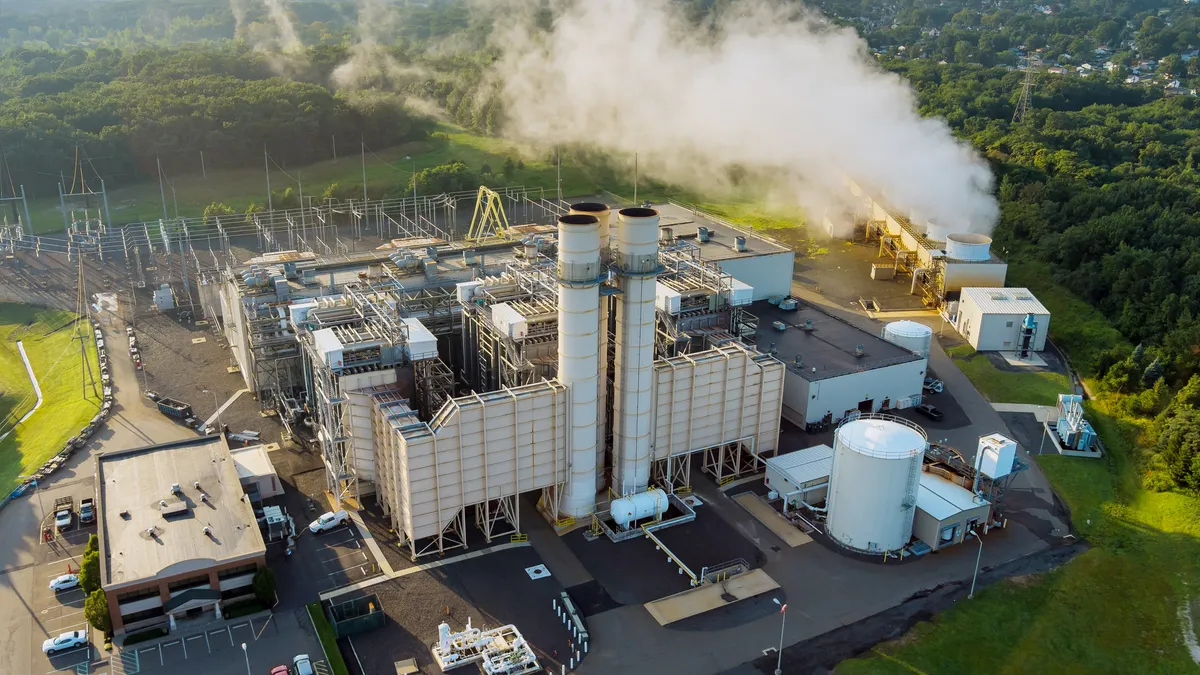Dive Brief:
-
Private equity funds with significant investments in PJM Interconnection-area power plants earn less than funds without holdings in the PJM territory, according to a report from the Institute for Energy Economics and Financial Analysis, known as IEEFA.
-
Low capacity prices, large nonperformance fines and uncertainty around pending market reforms all serve to make PJM a riskier environment for investors, according to Dennis Wamsted, an energy analyst at IEEFA and the author of the report.
-
Increased risk could prompt investors to steer clear of assets in PJM — and could serve to make existing assets harder to sell, Wamsted said.
Dive Insight:
Private equity and the parties that own it — including pension and retirement funds — have long appreciated energy assets in PJM for their above-average returns, Wamsted said. But that dynamic stands to change as the performance of these funds waivers in the face of the energy transition and PJM-specific market conditions.
Private equity can be difficult to track, but IEEFA found that four large funds with significant energy holdings in PJM compared poorly with broader benchmark funds. Three of the four performed worse than 75% of comparable private equity funds, according to the report.
Private equity has played a significant role in shaping the PJM market. Since 2011, IEEFA found that private equity has funded more than 80% of new natural gas generation capacity built in the PJM territory. And this made sense at the time, Wamsted said — investments in PJM had for years outperformed the market.
“People said, 'I can make money if I build a plant there. I'm going to get paid,” Wamsted said. “So they built, and what happened is prices for capacity went down because there was more capacity than was needed.”
Then PJM slapped primarily gas-fired generation with billions of dollars in nonperformance fines following Winter Storm Elliott in December. These fines, Wamsted said, could push some private equity funds with holdings in PJM into bankruptcy. And on top of this, PJM has filed requests to make a series of market reforms with FERC, creating even more uncertainty for investors.
Jeffrey Shields, a PJM spokesman, noted that the reforms, filed last week, are intended to increase grid reliability and decrease volatility. This should allow energy suppliers to more accurately assess the financial risks associated with the prices they offer PJM, Shields said.
However, Wamsted said he still believes the reforms — which must be reviewed and approved by the Federal Energy Regulatory Commission — will create increased risk for investors compared to what they experienced in the past.
Given these risks and the growing backlash against fossil fuels, Wamsted said private equity funds would be ill-advised to make additional investments in PJM gas plants. And it's not just new investments that will be impacted, he said — investors might like to offload some of their PJM assets given the current environment, but selling a PJM gas plant could prove difficult, he said. This could prompt some funds to retire gas plants earlier than expected, and those closures may not be such a bad thing for the rest of the market , he said.
“If some of these older units do retire,” he said, “you would expect capacity prices to go back up, because that is how the market was designed. And then there will be a new developer saying I can make money in that market and I will build a wind turbine or rooftop solar” in PJM.













